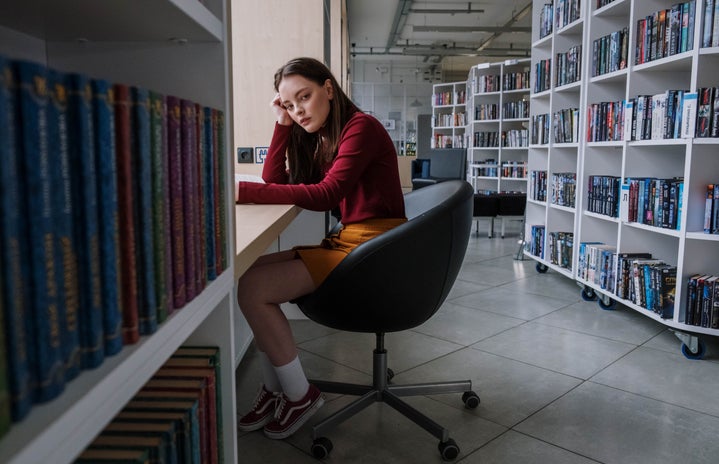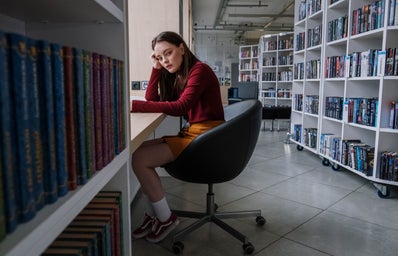Article by freelancer Lauren Haffner
Trading her bedroom for a real classroom was an interesting transition for University of Maryland sophomore Katie Cornell. During the months of online learning, Cornell said she was diagnosed with depression and anxiety.
“There was no separation between my social life and my school,” said Cornell, who is enrolled in letters and sciences.
Motivation, mental health and making connections had become a thing of the past during the COVID-19 pandemic.
Students at the University of Maryland have experienced a variety of mental health repercussions from the shift back to in-person learning. As the university welcomed students back into the classrooms this school year, the impact of isolated learning still continues to linger.
Anxiety and depression significantly increased in the United States during the pandemic, according to the Centers for Disease Control and Prevention.
Senior psychology major Elyse Broder said last school year, she experienced feeling “very trapped” and “suffocating.” During that time, she decided to seek therapy even though she had no history of struggling with her mental health. Broder said she went into this school year with hopes of returning to how life on campus was before the pandemic.
The transition back to in-person classes was difficult for Broder. She said that feeling of exhaustion during the first month of school was challenging. Broder sometimes finds herself stuck with the feelings and thoughts from the pandemic as her social battery has remained low.
“The fact that I should be happy and enjoying all these things, but I’m really tired and it’s like a lot,” Broder said.
Professors have also seen the impacts of this transition. Philip Cohen, a sociology professor at this university, said there was a lack of presence from students when learning took place online. A lot of Cohen’s students were having trouble last school year, but there was no way to have helpful interactions through a screen. Families had economic problems, lost jobs, canceled plans and crowded houses, Cohen said.
Students are happy to be back in the classroom despite the masks and awkwardness, Cohen said. He continues to check in on his students through short writing assignments and has found a good number of them discussed their mental health problems on those assignments.
“I would say a large minority of students have mentioned their own mental health struggles, and I would say it’s basically anxiety and depression. Those are the phrases I have seen a number of times,” he said.
In-person classes have had a positive social impact on sophomore supply chain and marketing major Jocelyn Lister. The ability to create connections with fellow students and professors has been very helpful for Lister. She said some of her peers feel the same as they now have the opportunity to meet new people.
After last school year, Lister said she struggled with time management and navigating campus life. Her days were spent in her room, either in class or studying for her classes. The use of facilities on campus was limited. Lister admitted she didn’t even know how to use the library.
“I’ve been able to make friends, network and find a lot more resources to help me succeed academically [now that things are back in person],” Lister said.


